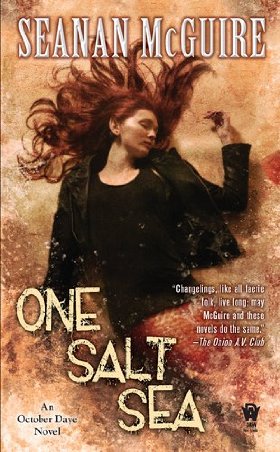
What Makes a Bad Book? (And What Makes Good Ones?)
Written by: Beth Woodward, CC2K Books Editor
 I have been so busy of late, traveling and whatnot, that my recent updates have been…sporadic, to say the least. Bad Book Editor! But now that I have a chance to sit down and write, I thought it would be a good opportunity to reaffirm what I’m about as a Book Editor, what my goals and motivations are.
I have been so busy of late, traveling and whatnot, that my recent updates have been…sporadic, to say the least. Bad Book Editor! But now that I have a chance to sit down and write, I thought it would be a good opportunity to reaffirm what I’m about as a Book Editor, what my goals and motivations are.
I don’t like writing negative reviews. I’ve done it, will likely do it again, but I hate doing it. A book may not be my cup of tea, but that doesn’t mean someone else won’t like it. Plus, as a writer myself, I’m very conscious of how hard it can be to have your work eviscerated by someone. But those aren’t the only reasons, or even the most important. To be honest, I’d rather spread positive vibes about the books I loved than negative ones about books I didn’t like. As such, you will probably see more glowing reviews from me than mediocre ones. It’s not that I love every book I read, it’s that I prefer to write about the ones I love.
So what takes a good book and turns it into a book I love? I think that’s something so intangible that it would be impossible to explain it. What I can explain, however, is what makes a bad book—at least for me.
Weak characters. Now when I say “weak,” I don’t mean that they have weak personalities (that’s another story). When I say “weak,” I mean flat and underdeveloped. For me, my investment in a book has a lot to do with the characters. It’s one of the reasons I’ve grown to like series fiction: it allows characters to grow and develop over the course of several books. But it’s easier to create cardboard characters than ones that feel like flesh-and-blood people. She was pretty and nice, he was ugly and mean, blah blah blah. Real people have nuances and flaws and quirks. Real people grow and develop over time. But all too often, story characters just don’t feel like real people.
Who’s doing it right? Seanan McGuire. The fifth book in her October Daye series, One Salt Sea, was the strongest yet. The antagonist, Rayseline Torquill, was a character that could have been very much a stereotypical villain. But McGuire inserted these details—like her tendency to collect rocks and the reason behind that—that made the character, if not sympathetic, then at least more realistic.
Uninteresting plots. If characters are what gets me invested in a book, then the plot is what gets me hooked in. I think this is why I have trouble with a good percentage of literary fiction: the characters may be complex and nuanced, but nothing happens. I can’t spend 300 or more pages with characters who don’t do anything. Plot needs to happen externally before introspection can happen internally.
Who’s doing it right? Since I picked a genre fiction author who has great characters, I’ll go with a literary fiction author who has great plots: Ian McEwan’s Atonement (which, I confess, I read because the movie trailer looked awesome, and I have a ginormous crush on James McAvoy). This is an incredibly introspective book, about love and regret and atonement. But stuff happens. There’s a romance. There’s a sexual assault. There’s a war. It’s one of those books that got to me in every single way.
Trippy language. And what I mean here is language you trip on. I know this might not be everyone’s opinion, but to me, when you’re reading fiction, language is something you shouldn’t notice. In fact, it’s something I don’t notice unless there’s something wrong with it. For me, reading is like a boat, and language is like the water beneath it: if it’s rough or choppy, I’m likely to get motion sickness. I’m not much for the beauty or poetry of the English language. (In fact, if you’d ask my high school English teacher, it’s not a very pretty language anyway.) For me, it’s a tool to convey a story. It should not overtake the story. If I have to make an effort to read it, I’m giving up on it.
Who’s doing it right? Impossible to say, when “doing it right” means invisibility.
The slow start. I love to read. But I also have the attention span of a gnat. Call it a consequence of our media saturated culture, but if a book doesn’t capture my attention within the first five pages or so, I’m probably not going to keep reading it. Yes, I know, there could be great things happening in later pages, but that’s me and I won’t apologize for it. I like it when books get into the plot right away. The background and so forth can be explained later.
Who’s doing it right? I’m in the middle of Greywalker by Kat Richardson right now, which has this awesome, right-out-of-the-gate beginning. The heroine busts a criminal, gets attacked, goes on a chase, and dies…all within the first chapter.
